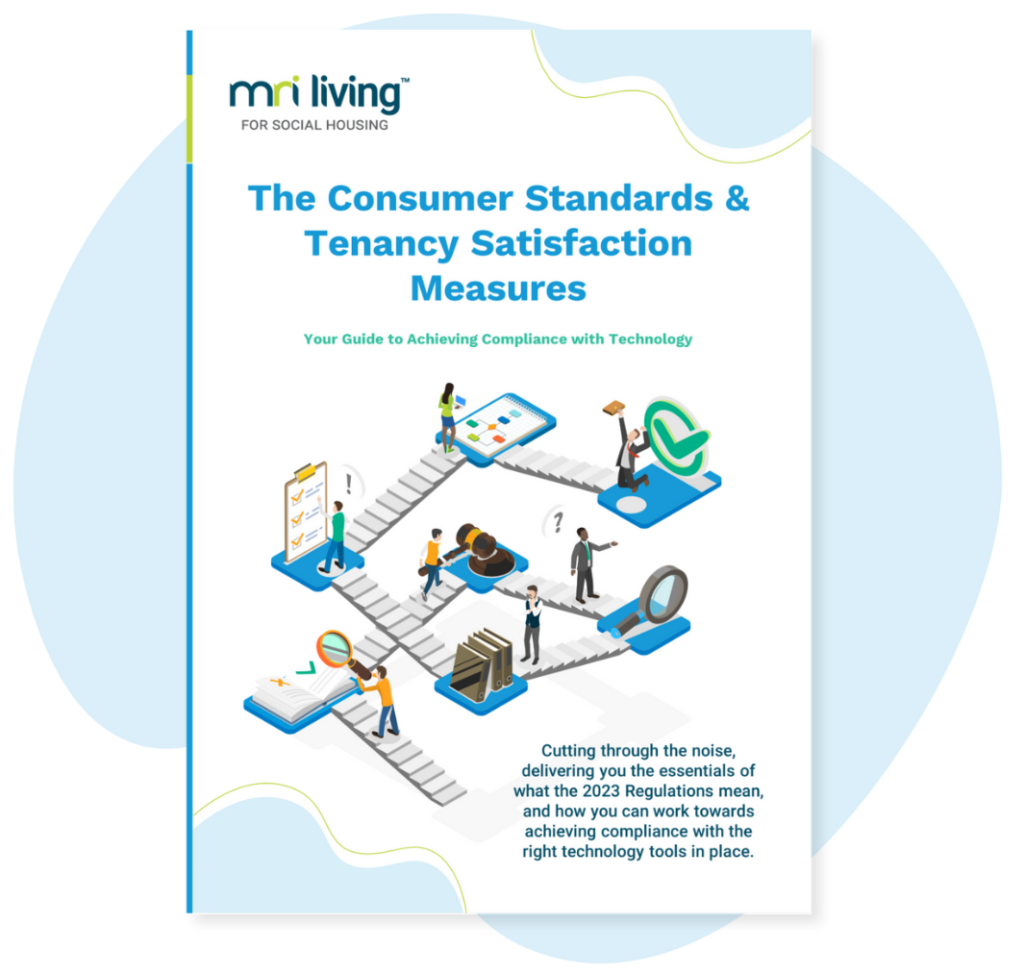Resident Voice Index™ Community Support & Life After Lockdown survey launches!
Following a research cycle and consultation with our partners, residents and the sector, the next survey from the Resident Voice Index™ is here! Launched November 1st 2021, the Community Support & Life After Lockdown survey is open and asking social housing residents about their experiences across the past year and a half, their relationship with their housing provider and what people’s outlooks are for the future following this extraordinary time.
The impact the pandemic has had on us all has been momentous; this rare global collective experience – and in some cases, trauma – has affected all of us. Across the world there will be a scramble to collect and analyse data to accelerate our understanding of how we withstand shocks, prepare for further adversity and how people believe the recovery and rebuilding from this time should be handled.
Before the memories fade, we are consulting the Resident Voice Index™ community and our unique access to a large network of social housing residents to hear from them directly about their experiences during this time and their recommendations for communities.
There’s a chance to take the good coming out of the pandemic in terms of building stronger communities and delivering services in a different way.
Housing provider, Resident Voice Index™ workshop
The survey asks about the services and assistance that communities received during the lockdowns and the feelings of loneliness, resilience and optimism that people felt. It will seek to investigate whether these feelings have shifted since the start of the pandemic, asking residents about any changes in the relationship that they have had with their housing provider across that time. The results are set to be incredibly interesting and our hope is, as with the first report, contributed to by just under 4,000 social housing residents, that their thoughts provide actionable insights for providers and policy makers to take on board in their strategies.
To shape the questions for the survey one of our project partners, HQN arranged workshop sessions that were undertaken with their members, both residents and housing providers. Below we outline the key themes and topics that emerged from these enlightening sessions, which spoke to the ongoing challenges faced across the sector.
We need to ask tenants what their priorities are and avoid assuming we think we know what’s important.
Housing provider, Resident Voice Index™ workshop
We are all ‘vulnerable’
What has become apparent over the past few years is that our ability to cope under stress has been tested, we are all capable of being vulnerable and we all have complex needs. Attendees in the session for housing providers spoke at length about this and the need to move away from stigmatising language that describes those in social housing as ‘vulnerable’.
One Chief Executive in attendance spoke of adopting new approaches to leadership and resident/housing provider relationships, which included moving the paradigm away from a ‘fixing’ one to a ‘healing’ one and engaging in the practice of ‘Compassionate Listening’.
During the residents’ focus group great levels of empathy for how housing providers coped in the first parts of the pandemic were shown and the challenge is for providers to maintain these levels as things ‘return to normal’.
Actions from housing providers in response to the pandemic
When asked about the assistance given by their housing providers during the lockdowns, there was a mixed set of responses across the resident workshop session.
Some described housing providers and local authorities that stepped up and were a great source of support. Some described piecemeal and inconsistent assistance. Others in no uncertain terms felt that their communities had received no assistance.
Give residents resources and they’ll take it from there
A theme that continues to emerge across the Resident Voice Index™ project is that of giving communities resources to connect with and support one another and build self-sustaining resilience. One resident attendee described the difference that taking ownership of communal green space made over the pandemic in helping to connect their community.
Everybody’s starting to realise that they are part of the wider community around them, just through something little that might seem insignificant changing. Small things matter. I think that’s what I’ve learnt over the last year: small things matter.
Resident, Resident Voice Index™ workshop
Some housing providers are recognising this and looking at how to assist residents in taking more ownership over their homes and neighbourhoods. One provider that we spoke to is even exploring how to facilitate residents carrying out repairs in their homes themselves.
We did our repairs very differently right at the beginning, because one of our resident surveys a few years back said that they wanted us to help them look after their homes themselves – which we were beginning to get to the bottom of and then the pandemic came in. Then last year we were able to deliver tools and materials to go into homes.
Housing provider, Resident Voice Index™ workshop
Digital services are here to stay but deliver them well
The transition to digital services across housing delivery is well underway and was accelerated by the pandemic, with resident expectations changing in line with other services they receive.
We were fortunately in a transitional change of becoming more digital just before Covid hit. Our customers engage far more with us, especially for online consultations. Our relationship has changed, they want to give us feedback. They want to communicate with us a lot more. We’ve shown more interest in them.
Housing provider, Resident Voice Index™ workshop
Generally, across the sessions this was embraced. With the thought that if technology is being used to streamline services and improve relationships with residents then extra time and resources found from those efficiencies would be well spent on feet on the ground and in-person community work. There was a mindfulness from both residents and providers that these processes needed to consider the needs of individuals and the challenges that digital exclusion may bring.
One of the residents made a cogent argument that the records of housing providers need to improve to identify who needs assistance in times like a lockdown. They made it clear that systems that work could go a long way to solve problems in customer service.
What now?
There was a palpable sense of foreboding for the coming 12 months. Now that the emergency work is done, staff and residents appear somewhat depleted. Housing providers spoke of frontline staff who are looking with worry at the implications that the cost-of-living crisis will have over the coming winter. Residents spoke of looking to one another to raise their voices collectively for fear of being ignored as individuals. One resident made it clear that to move forwards working together, it would be necessary to include wider members of communities and agencies in the conversation.
We are really looking forward to hearing again from social housing residents in the UK about the topics we explored above and freely sharing those insights with the sector, residents and policy makers in the new year.
How can my residents get involved?
To access a resource pack to send the survey out to your residents, simply click here.
Or share the link to the survey directly with your residents here.
The Consumer Standards and Tenancy Satisfaction Measures: Your Guide to Achieving Compliance with Technology
Cutting through the noise, delivering you the essentials of what the Consumer Standards and Tenancy Satisfaction Measures 2023 Regulations mean, and how you can work towards achieving compliance with the right technology tools in place. New regulatio…

